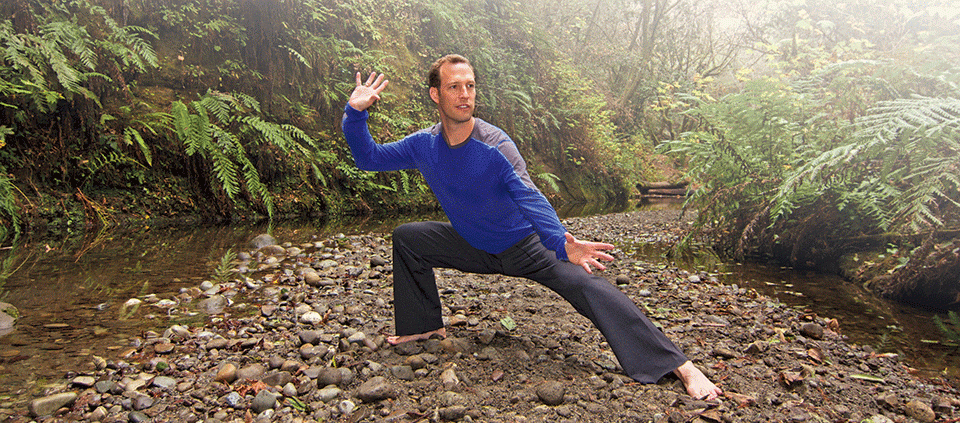What Is Qigong?

Qi is often translated as “life-force energy.” To the ancient masters, energy was that elusive substance that we are all seeking. It is that vital force that makes life exciting, fun, creative, and joyful. Instinctively, we know that, the more energy we have, the better we feel.
Energy is the invisible, immaterial substance that propagates life and animates our bodies with movement. Energy is in the air we breathe, the food we eat, and the emotions we feel. Energy is not just in our bodies, but permeates all of nature: Mountains arising, forests growing, rivers flowing, and all life proliferating are expressions of this life-force energy.
Quantum physicists and mystics from all ages agree that we are literally made of and living within a limitless sea of energy. How is it, then, that we suffer from chronic low energy, fatigue, or poor health? Medical surveys show that “lack of energy” and high levels of stress are the biggest complaints in physicians’ offices today.
Think about it this way: If the power lines go down or flicker on and off during a storm, everything in the house stops working or only works sporadically. Without electricity, we have no heat; we can’t cook our food, watch TV, or use the computer. If we apply the same principles to our minds and bodies, we see that low energy causes shortages in our overall vitality, the way we metabolize food, our stress levels, our libido, our creativity, and our enjoyment of life.
Qi means “energy” as well as “breath.” Gong is a general term meaning “work” or “skill.” Hence, the term qigong may be translated as “breathing exercise” as well as “energy work.” In terms of the practice of qigong exercises, it signifies “an expertise at working with life-force energy.” Becoming an expert at working with our own internal energy gives us the resources to have choices and manifest the kind of day and life that we want to have.
The Chinese character for qi signifies vapor or mist rising off of rice. Vapor or mist is a wonderful metaphor for qi, because it is invisible yet tangible. Vapor also alludes to breath or breathing. The subtle skill of breath control is one of the keys to circulating the flow of internal energy in the body.
Qigong is based on the premise that the human body is an energy system. As long as it has energy, or qi, it is alive; when energy is gone, it is dead. Based on the primordial principles of classical Taoist philosophy, qigong is a simple and practical approach for gaining skill in matters of health, happiness, and spiritual attainment. Qigong practitioners learn how to tap into their own inner resources and become self-sufficient and skilled at working with their own internal energy. Qigong amplifies the internal energy of practitioners, enabling them to become full of vitality, healthy, emotionally balanced, and spiritually connected. This creates inner balance and harmony that leads to longevity and a deep sense of purpose in life.
People watching qigong see only slow, graceful movement or simple stretches. People often ask, “How can that get you in shape or train you to be a better martial artist?” But, like an iceberg, there is a lot more to qigong than meets the eye. What you can see and witness in a qigong practice is only the surface of a much deeper and potent internal power. Qigong is simple: It requires no equipment and little space, and can be practiced in a short amount of time.
Yet, simple as it seems, qigong brings an incredible amount of healing power to the practitioner—so much so that some of the effects and cures it achieves are often discounted as "miracles," even by eye-witness observers. Qigong has an unseen depth that can be utilized to enhance your body's natural healing potential. Also, it can help you tap into your own deep inner resources. From that place of power, you can bring forth whatever it is that you want to experience.
Find out about upcoming programs with Lee Holden at Kripalu.
This article originally appeared on Lee’s website, leeholden.com.
Lee Holden is a doctor of Chinese medicine, an internationally celebrated qigong master whose programs aired regularly on PBS, and author of Seven Minutes of Magic.
Full Bio and Programs